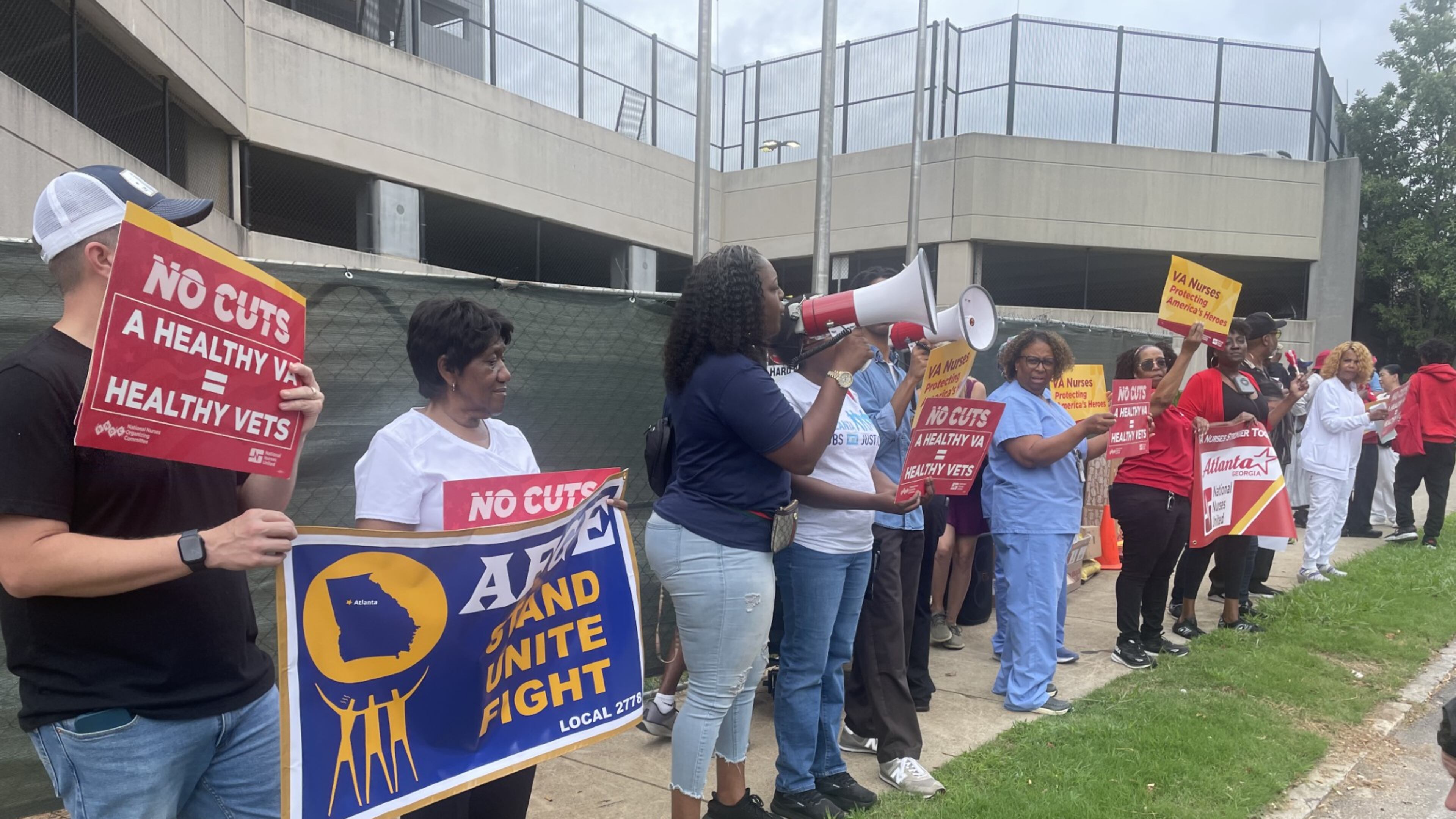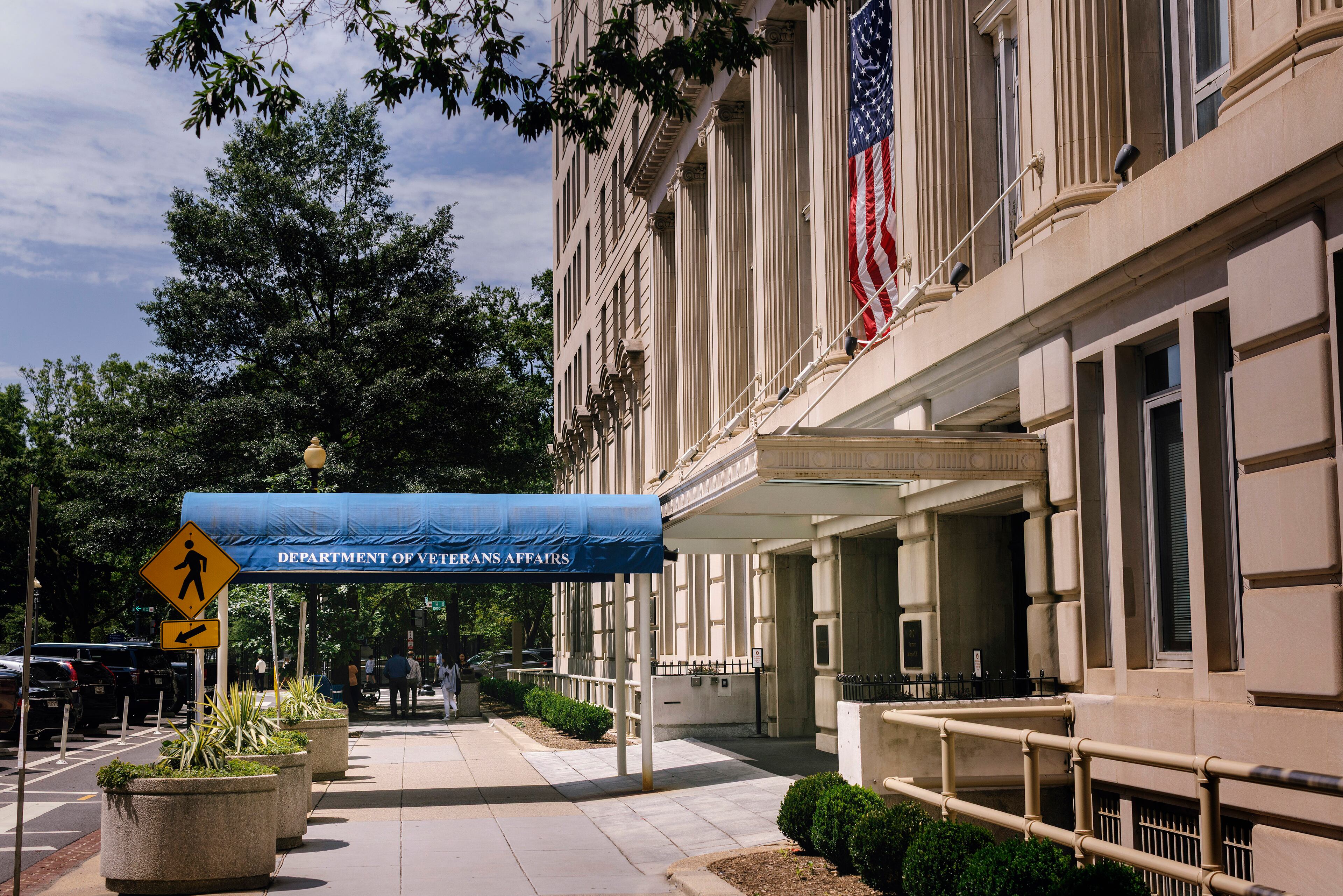Veterans Affairs reassigning Atlanta-area nurses amid major overhaul

Sharon Kuluwa’s eyes rimmed with tears as she contemplated what could happen to her patients if her mental health care team is shrunk amid the Trump administration’s efforts to overhaul the U.S. Department of Veterans Affairs.
A registered nurse from Loganville, Kuluwa visits the Atlanta-area homes of military veterans with post-traumatic stress disorder, schizophrenia and other serious mental health conditions. Frequently hospitalized, they sometimes don’t show up for medical appointments, won’t take their medication and are at high risk of suicide, she said.
Last month, Kuluwa added, VA officials announced that at least four of the other eight nurses on her team would be reassigned to fill openings elsewhere within the department focusing on mental health and addiction. The move comes amid broader staffing cuts at the federal agency.
“If you are taking staff from this program, then what is going to happen?” Kuluwa said this week after attending a National Nurses United rally opposing the reassignments and the VA’s decision this month to cancel the union’s collective bargaining agreement. “Increases in suicide attempts. Increases again in hospitalization.”
Kuluwa’s Mental Health Intensive Case Management team is a tiny part of the VA, which employs more than 450,000 people nationwide. But the drama surrounding it illuminates the broader contentious debate over the Trump administration’s efforts to radically overhaul the VA.
The nurses held their rally the same day the VA’s Office of Inspector General released the results of a survey showing VA facilities across the nation had 4,434 staffing shortages as of April. That is up 50% from the year before.
Combined, the three VA facilities near Augusta, Decatur and Dublin had 109 clinical and nonclinical staffing shortages. These shortages, according to the OIG, are determined by positions that are difficult to fill and do not necessarily reflect vacancies.

VA press secretary Pete Kasperowicz responded to the OIG report, saying it is “not based on actual VA health care facility vacancies and therefore is not a reliable indicator of staffing shortages.”
“The report simply lists occupations facilities feel are difficult for which to recruit and retain,” he said, “so the results are completely subjective, not standardized and unreliable.”
The VA’s vacancy rates for doctors and nurses are 14% and 10%, respectively, he said.
Asked about Kuluwa’s concerns, the agency said it is reassigning some nurses from “low-demand specialties to those with higher demand, such as non-intensive mental health care and substance abuse treatment.”
“These moves will improve care for veteran patients and have no negative impact on the Mental Health Intensive Case Management program, which is seeing much lower caseloads than it previously has,” the VA said.
Last month, the agency announced it was on pace to reduce its staff by nearly 30,000 workers by Sept. 30. This has been achieved, according to the VA, through a federal hiring freeze, deferred resignations, retirements and normal attrition, eliminating the need for “a large-scale reduction-in-force.”
The agency did not respond to repeated requests for information showing the impact in Georgia. But it said it “has multiple safeguards in place to ensure these staff reductions do not impact veteran care or benefits. The VA continues to hire for mission-critical positions in Georgia and across the country.”
The VA’s data from July shows it is hiring substantially fewer people compared with last year. Job applications were down about 45% and the number of new employees starting VA jobs had dropped by nearly 53%.
VA officials said they are making it easier and faster for veterans to get care from providers outside the VA, a move that has drawn sharp criticism from National Nurses United.
“It is deeply concerning and very telling that the VA is prioritizing veteran care in the private for-profit sector, where taxpayers will pay more for care that is inferior to VA care and not subject to the same intense scrutiny,” the nurses’ union said in a statement.

Military veterans who attended the nurses’ rally this week at the Atlanta VA Medical Center near Decatur voiced similar concerns about the agency’s plans to reassign nurses from Kuluwa’s team.
“It fits in this broader pattern of this administration trying to dismantle the VA and take health care away for veterans,” said Chris Purdy, an Army National Guard veteran from Atlanta who leads the Chamberlain Network, a nonprofit veterans group focused on protecting democracy.
Ed Anderson, a U.S. Air Force veteran from Clarkston, is also concerned about the VA’s overhaul.
“The people who are really going to be hurt are the veterans who live in rural communities,” said Anderson, who works with Common Defense, which was founded in 2016 by veterans opposed to President Donald Trump’s agenda. “There are some places where a VA hospital might be a three- or four-hour drive. People say community care is the answer to that. A lot of physicians do not want to take community care because of the problems of getting paid by the government.”
VA records reviewed by The Atlanta Journal-Constitution also show the agency announced last month that one of six nurses who work for a program helping Atlanta-area homeless veterans would be reassigned to a team focusing on patient mental health. Julie Ekunwe, a registered nurse from Lawrenceville who works in the homeless veterans program, worries what that change could portend.
“If they reassign people,” she said, “the veterans are going to be the ones who suffer.”



